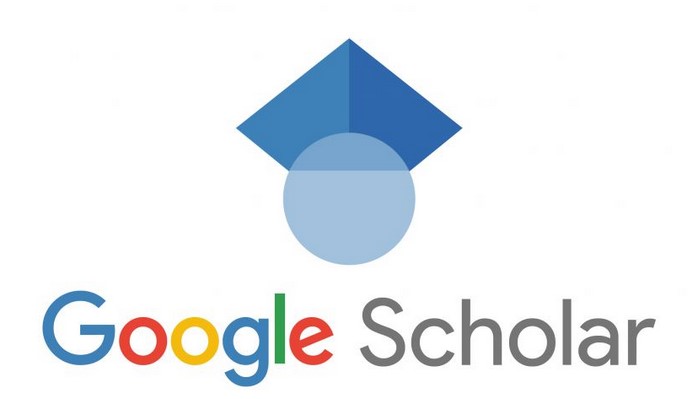Keywords
covid-19, media, webtoon, comic
Document Type
Article
Abstract
During the Covid-19 pandemic, everyone must be at home and keep a distance using a mask. The spread massively. It becomes the basis for all stakeholders to find solutions, both in the form of preventive (prevention) and curative (cure). One of the strategic educational media used to prevent and overcome covid-19 for the current generation of digital natives is through digital comics or webtoons. Comics in digital form has many advantages over printed comics. Based on this, the research aims to find out how the impact of the promotion of the National Defense Knight Comics through the Webtoon as an educational medium for preventing and controlling Covid-19 for the community. The method used is Research and Development (R&D) using the Waterfall development model. The results of this review show that promoting comics of state defense knights through webtoons can become a medium of persuasion for education on preventing and overcoming Covid-19. The innovative education offered by the knight Bela Negara comic designs webtoon readers to be closer to the story and characters because it is more humane, so that they are able to show the effects in the form of responses, both cognitive (knowledge development), affective (through positive attitudes) and connective (action as the results of stimulating positive attitudes) related to the prevention and handling of covid-19.
First Page
138
Last Page
147
Page Range
138-147
Issue
1
Volume
18
Digital Object Identifier (DOI)
10.21831/jc.v18i1.39377
Source
https://journal.uny.ac.id/index.php/civics/article/view/39377
Recommended Citation
Anggraeni, L., Darmawan, C., Tanshzil, S. W., & Jubaedah, E. (2021). Promoting Ksatria Bela Negara comic through the Webtoon for the prevention and control Covid-19. Jurnal Civics: Media Kajian Kewarganegaraan, 18(1), 138-147. https://doi.org/10.21831/jc.v18i1.39377
References
Andriani, H. (2020). Effectiveness of large-scale social restrictions (PSBB) toward the new normal era during covid-19 outbreak: A mini policy review. Journal of Indonesian Health Policy and Administration, 5(2), 61-65. https://doi.org/10.7454/ihpa.v5i2.4001
Ashwal, G., & Thomas, A. (2018). Are comic books appropriate health education formats to offer adult patients? AMA Journal of Ethics, 20(2), 134-140. https://doi.org/10.1001/journalofethics.2018.20.2.ecas1-1802
Belch, G. E., & Belch, M. A. (2009). Advertising and promotion: An integrated marketing communications perspective. McGraw-Hill.
Choi, J. (2016). "Awl is piercing me and society": Webtoon as a popular adult education tool in South Korea. In B. Chang & M. Misawa (Eds.), Proceedings of the 8th Asian Diaspora Adult Education Pre-conference.
Fies, B. (2009). Mom's cancer.
Green, M. J., & Myers, K. R. (2010). Graphic medicine: Use of comics in medical education and patient care. BMJ, 340(mar03 2), c863-c863. https://doi.org/10.1136/bmj.c863
Jatnika, A. W., & Hermawan, F. F. (2018). Menjadi lelaki sejati: maskulinitas dalam komik daring webtoon Indonesia. Mudra Jurnal Seni Budaya, 33(1), 60-66. https://doi.org/10.31091/mudra.v33i1.158
Kim, J.-H., & Yu, J. (2019). Platformizing webtoons: The impact on creative and digital labor in South Korea. Social Media + Society, 5(4), 1-11. https://doi.org/10.1177/2056305119880174
Lesmono, A. D., Bachtiar, R. W., Maryani, & Muzdalifah, A. (2018). The instructional-based andro-web comics on work and energy topic for senior high school students. Jurnal Pendidikan IPA Indonesia, 7(2), 147-153. https://doi.org/10.15294/jpii.v7i2.14245
Lestari, A. F., & Irwansyah, I. (2020). Line webtoon sebagai industri komik digital. SOURCE : Jurnal Ilmu Komunikasi, 6(2), 134-148. https://doi.org/10.35308/SOURCE.V6I2.1609
McCloud, S. (2008). Understanding comics. Paw Prints.
McNicol, S. (2017). The potential of educational comics as a health information medium. Health Information & Libraries Journal, 34(1), 20-31. https://doi.org/10.1111/hir.12145
Miranda, P. H., Waluyanto, H. D., & Zacky, A. (2018). Perancangan buku komik sebagai media informasi mengenai dampak game terhadap perilaku sosial anak. Jurnal DKV Adiwarna, 1(12), 9. http://publication.petra.ac.id/index.php/dkv/article/view/7259
Mulyana, D., & Rakhmat, J. (1990). Komunikasi antarbudaya. Remaja Rosdakarya.
Mustaqim, I., & Kurniawan, N. (2017). Pengembangan media pembelajaran berbasis augmented reality. Jurnal Edukasi Elektro, 1(1), 59-72. https://doi.org/10.21831/jee.v1i1.13267
Ntobuo, N. E., Arbie, A., & Amali, L. N. (2018). The development of gravity comic learning media based on gorontalo culture. Jurnal Pendidikan IPA Indonesia, 7(2), 246-251. https://doi.org/10.15294/jpii.v7i2.14344
Nurcahyani, D., Maulida, N., & Prasetya, K. H. (2018). Analisis nilai-nilai pendidikan karakter tokoh utama guru honorer dalam komik pak guru inyong berbasis webtoon karya anggoro ihank. Jurnal Basataka (JBT), 1(2), 35-40. https://doi.org/10.36277/basataka.v1i2.26
Nurhayati, E. (2020). Meningkatkan keaktifan siswa dalam pembelajaran daring melalui media game edukasi Quiziz pada masa pencegahan penyebaran Covid-19. Jurnal Paedagogy.
Park, Y., Yim, S., & Jeong, H.-S. (2016). Imagining through webtoon: Webtoon-focused convergence education project in middle school. Cartoon and Animation Studies, 45, 451-477. https://doi.org/10.7230/koscas.2016.45.451
Pekar, H., & Brabner, J. (1994). Our cancer year. Running Press.
Petersen, R. (2010). Comics, manga, and graphic novels: A history of graphic narratives. ABC-CLIO.
Puspitorini, R., Prodjosantoso, A. K., Subali, B., & Jumadi, J. (2014). Penggunaan media komik dalam pembelajaran ipa untuk meningkatkan motivasi dan hasil belajar kognitif dan afektif. Jurnal Cakrawala Pendidikan, 33(3), 413-420. https://doi.org/10.21831/cp.v3i3.2385
Rachman, R. S., & Damaianti, V. S. (2019). Peran sains-teknologi dalam pembelajaran BIPA: Pengembangan webtoon berbasis komunikasi lintas budaya sebagai antisipasi gegar budaya. Konferensi Internasional Pengajaran Bahasa Indonesia Bagi Penutur Asing (KIPBIPA) XI, XI, 453-465.
Rahman, Y., & Triadi, A. (2019). Perancangan cerita webtoon mengenai budaya palang pintu. Desain Komunikasi Visual, Manajemen Desain Dan Periklanan (Demandia), 4(1), 1-15. https://doi.org/10.25124/demandia.v4i01.1968
Rakhmat, J. (1999). Psikologi komunikasi. Remaja Rosdakarya.
Salaudeen, A., Musa, O., Akande, T., & Bolarinwa, O. (2013). Effects of health education on cigarette smoking habits of young adults in tertiary institutions in a northern Nigerian state. Health Science Journal, 7(1), 54-67. https://www.hsj.gr/medicine/effects-of-health-education-on-cigarette-smoking-habits-of-young-adults-in-tertiary-institutions-in-a-northern-nigerian-state.php?aid=3068
Suni, N. S. P. (2020). Kesiapsiagaan Indonesia menghadapi potensi penyebaran corona. Pusat Penelitian Badan Keahlian DPR RI, XII(3), 13-18.
Tumigolung, H. C. S., Wungouw, H., & Onibala, F. (2013). Pengaruh pendidikan kesehatan terhadap tingkat pengetahuan siswa tentang bahaya merokok di SMA Negeri 1 Manado. Nomor 1. Agustus, 1(1). https://ejournal.unsrat.ac.id/index.php/jkp/article/view/2186
Wirawan, S., Khairul Abdi, L., & Sulendri, N. K. S. (2014). Penyuluhan dengan media audio visual dan konvensional terhadap pengetahuan ibu anak balita. Jurnal Kesehatan Masyarakat, 10(1), 80-87. https://doi.org/10.15294/kemas.v10i1.3073
Yu, H. (2015). The other kind of funnies: Comics in technical communication (1st ed.). Routledge. https://www.routledge.com/The-Other-Kind-of-Funnies-Comics-in-Technical-Communication/Yu/p/book/9780895038401



